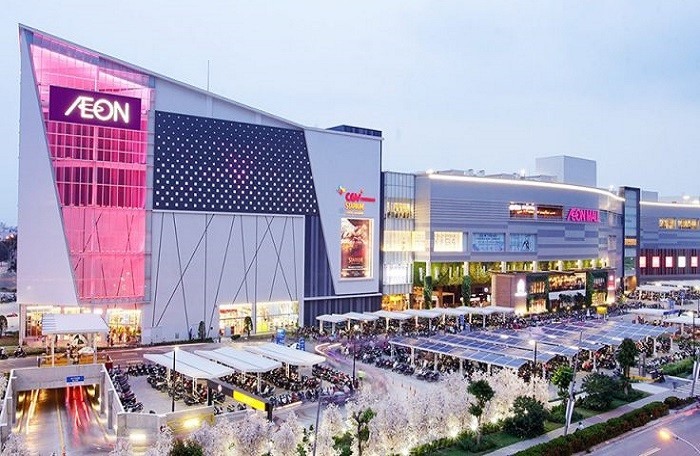 Economy
Economy

Recognising the threat online retail channels, owners of shopping centres will have to explore the use of retail space for non-conventional uses, particularly education, flexible workspaces and fitness clubs, according to Jones Lang LaSalle Incorporated (JLL).
 |
| A shopping centre. Landlords will have to shift away from traditional retail models to attract customers as more business moves online. - Photo vietnamfinance.vn |
HCM CITY – Recognising the threat online retail channels, owners of shopping centres will have to explore the use of retail space for non-conventional uses, particularly education, flexible workspaces and fitness clubs, according to Jones Lang LaSalle Incorporated (JLL).
The integration of technology in retail is gradually shaping consumers’ behaviour in Việt Nam. The growing popularity and convenience of online shopping is changing traditional shopping patterns and contributing to the migration from physical stores to online platforms.
According to JLL’s Q4 2018 report, total retail market space in HCM City and Hà Nội reached about 2 million sq.m, with the occupancy rate reaching 89.7 per cent and 88.1 per cent. respectively. Wishing to fill vacant space and increase customer traffic, many shopping centre developers have been considering bringing in non-conventional tenants.
Setting up a co-working, education and fitness space in a retail property provides a fun yet functional space with great accessibility, ample parking and value-add amenities like shopping, food and beverages, and other entertainment services. These tenants bring in daily traffic and have a stable master lease that is typically five to 10 years.
“For the current generation of workers, especially millennials, the traditional nine-to-five routine is slowly turning into work-life integration,” said Stephen Wyatt, Country Head of JLL Vietnam. “Thus, malls become an ideal location for non-conventional spaces, where you can easily access a young professional community, go shopping, study a foreign language and attend a quick yoga class all in a matter of a few footsteps.”
Before 2016, mall operators tended to prioritise big retail brands as key tenants as a way to add value. But landlords’ strategies have changed as non-retail service providers now promise to bring them benefits and the ability to fill areas on higher floors in commercial centres, he said.
They have one big factor working in their favour: fitness, co-working and education are categories that cannot easily shift online en masse anytime soon. Investors that put in a nominal investment in a vacant space to adapt it for a non-retail tenant can create long-term interest and occupied space.
“We anticipate that this will be one of the key trends over the next ten years; retail podiums throughout the city will need to re-position themselves to remain attractive in this fast-moving and dynamic sector,” said Wyatt. “Failure to adapt and remain present will undoubtedly lead to high vacancy levels.”
Properties that add a tenant with a strong brand can attract steady foot traffic with thousands of members funneling in and out their doors.
Most likely, those people are going to be potential customers to retailers – either they will get a quick bite at a food and beverage outlet or shop for a last-minute gift or the newest technology. – VNS




